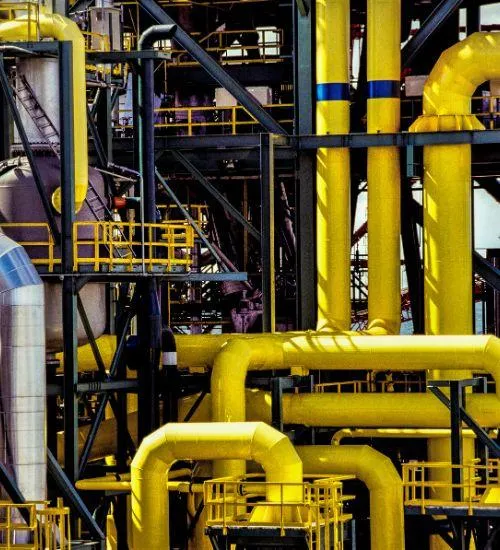Oil and Gas Royalties as 1031 Exchange Replacement Property:
An Informative Overview
Introduction
Oil and gas royalties present a unique opportunity for investors seeking replacement property options for a 1031 exchange. With the potential for attractive returns and tax advantages, these royalties have gained attention as an alternative investment avenue. This informational summary aims to provide an overview of oil and gas royalties as 1031 exchange replacement property, highlighting the key benefits, considerations, and potential risks associated with this investment strategy.

Understanding Oil and Gas Royalties
Oil and gas royalties are financial interests that entitle the owner to a portion of the revenue generated from the extraction and production of oil and gas resources. When an investor acquires these royalties, they receive regular payments based on their ownership stake, typically expressed as a percentage. The value of these royalties depends on several factors, including the production levels, commodity prices, and the terms outlined in the lease agreement with the operator.
Benefits of Oil and Gas Royalties as Replacement Property
Tax Advantages: One of the primary advantages of using oil and gas royalties as replacement property in a 1031 exchange is the potential for tax benefits. If structured correctly, investors can defer capital gains taxes on the sale of their relinquished property by reinvesting the proceeds into oil and gas royalties. This allows them to maintain and reinvest their investment capital and potentially increase their overall wealth.
Potential for Attractive Returns: Oil and gas royalties have the potential to generate substantial income, especially in areas with significant oil and gas reserves. As the extraction and production activities progress, royalty owners can receive regular cash flow, often over an extended period. However, it's essential to note that the income generated can vary based on several factors, such as production levels and commodity prices.
Considerations for Investors
Due Diligence: Before considering oil and gas royalties as replacement property, investors must conduct thorough due diligence. This includes researching the operator's reputation, evaluating the lease terms, and understanding the geology and production history of the region. Engaging the services of experienced professionals, such as attorneys, geologists, and landmen, can help investors make informed decisions.
Volatility and Risks: Oil and gas prices are subject to volatility, which can impact the value of royalty interests. Fluctuations in commodity prices, changes in production levels, and regulatory factors can affect the income generated from these royalties. Additionally, there are inherent risks associated with oil and gas exploration and production, such as drilling failures, environmental liabilities, and regulatory changes. Investors should be aware of these risks and consider diversifying their investment portfolio accordingly.
Management Considerations: Oil and gas royalties typically require minimal management compared to other types of real estate investments. However, investors should stay informed about the activities on the leased property, monitor production levels, and understand the terms of their lease agreement. It is also essential to assess the financial stability and track record of the operator responsible for extraction and production.
Exchanging Oil and Gas Royalties
When using oil and gas royalties as replacement property in a 1031 exchange, investors must follow certain guidelines. The IRS requires that the replacement property be of like-kind to the relinquished property, which means the oil and gas royalties must also qualify as like-kind property. Generally, mineral rights, including oil and gas royalties, are considered like-kind to other real property.
Investors must also adhere to the strict timelines and requirements of a 1031 exchange. Within 45 days of selling their relinquished property, they must identify potential replacement properties, including oil and gas royalties, and within 180 days, complete the acquisition of the identified replacement property. It is crucial to work with a qualified intermediary who specializes in facilitating 1031 exchanges to ensure compliance with all IRS regulations.
Tax Implications
While oil and gas royalties offer potential tax advantages, it is important to understand the tax implications associated with this investment. As with other income producing real estate investments, the income generated from oil and gas royalties is typically treated as ordinary income and is subject to federal and state income taxes. However, certain deductions and allowances may help offset the tax liability.
Intangible drilling costs (IDCs), such as drilling and completion expenses, are often deductible in the year they are incurred. Tangible drilling costs (TDCs), such as the cost of equipment and infrastructure, may be subject to depreciation over time. It is advisable to consult with a tax professional to fully understand the specific tax benefits and deductions available in relation to oil and gas royalties.
Exit Strategies and Liquidity
Investors should also consider the liquidity and exit strategies associated with oil and gas royalties. While these royalties offer potential long-term income, they are not as easily liquidated as other investments. Selling royalty interests can be challenging due to the specialized nature of the asset and the need to find interested buyers.
To enhance liquidity, some investors may choose to sell a portion of their royalty interests, explore secondary markets where buyers and sellers can transact, or work with an industry professional to assist with the sale of the asset. However, it is essential to evaluate the terms and conditions of such transactions, as they may impact the overall value and potential returns.

Conclusion
Oil and gas royalties can serve as an attractive option for investors seeking replacement property in a 1031 exchange. With the potential for tax advantages and attractive returns, these royalties offer a unique investment avenue. However, careful consideration of due diligence, risks, and tax implications is necessary before venturing into this asset class. Working with professionals who have experience in oil and gas investments, conducting thorough research, and consulting tax advisors can help investors make informed decisions and maximize the benefits of using oil and gas royalties as 1031 exchange replacement property.
Click here to initiate your standard, reverse, or improvement 1031 exchange setup: Start My Exchange.
CONNECT WITH US TODAY!
All Rights Reserved. Copyright 2026.




